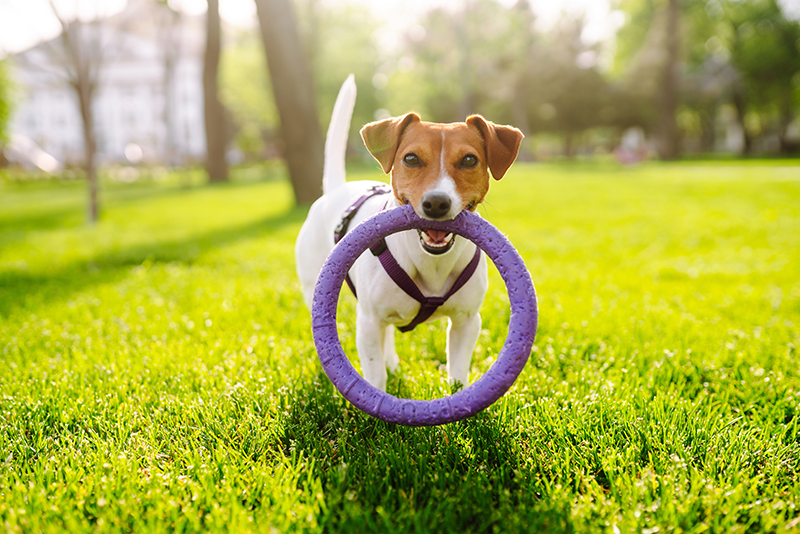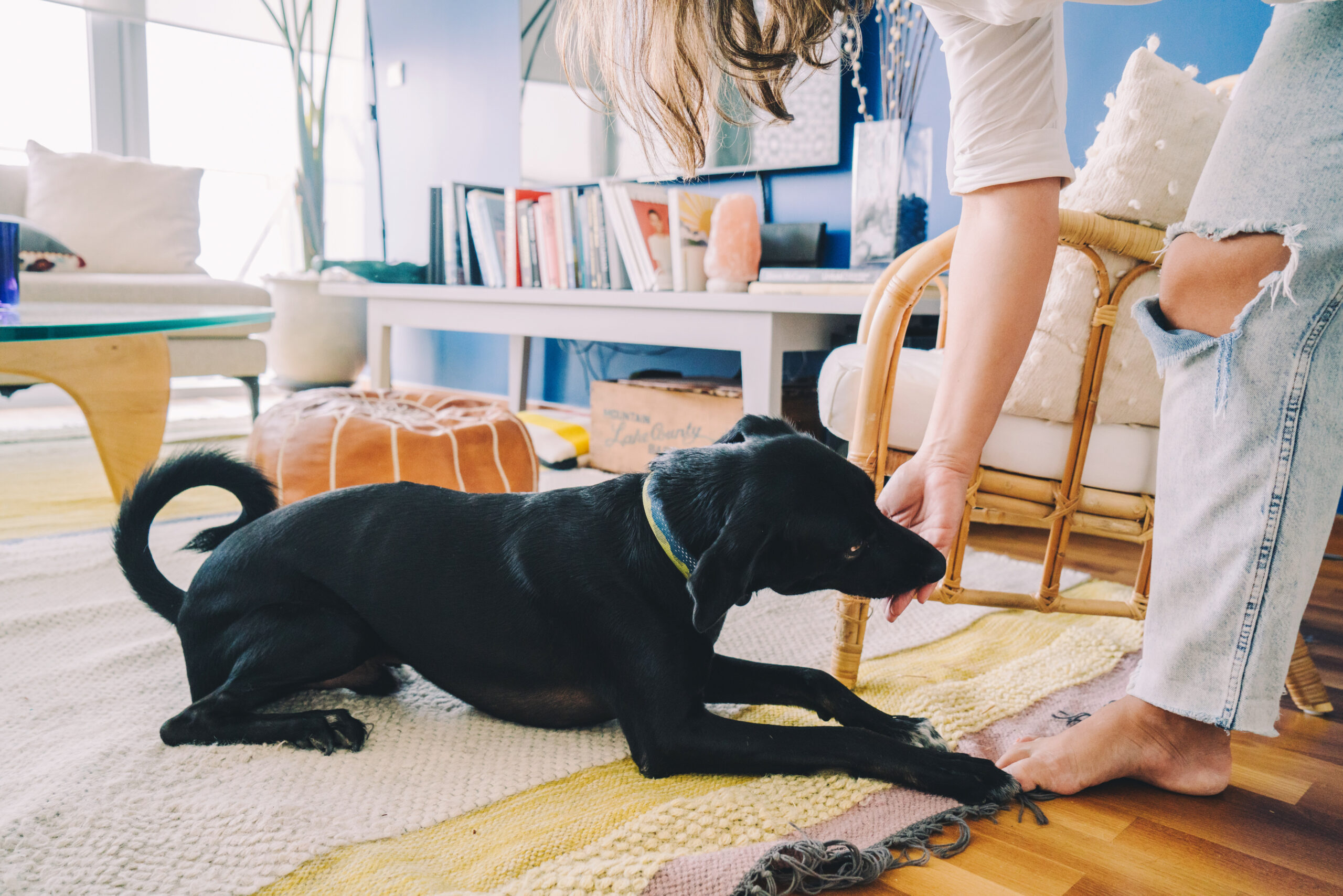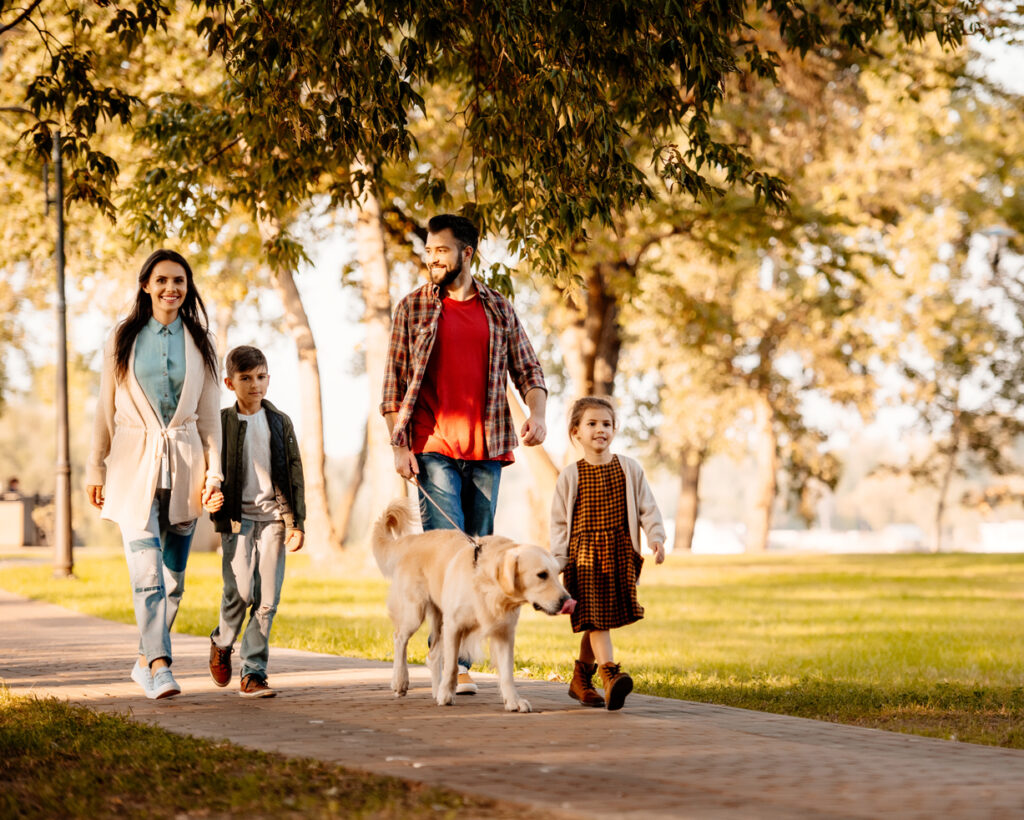
Social enrichment is a key aspect of your dog’s well-being, and just like humans, dogs thrive on social interactions (even introverts!). Whether it’s meeting new dogs, engaging with people, or learning new behaviors in different environments, these experiences play a vital role in your dog’s happiness and development.
Why Social Enrichment Matters
Socializing your dog is about more than just having fun—it’s a critical element of their mental and emotional health. Without proper socialization at an early age, dogs can become anxious, fearful, or even aggressive in unfamiliar situations. By giving your dog opportunities to interact with other dogs and people, you’re helping them develop confidence, learn appropriate behaviors, and improve cognition. Here are a few key reasons why social enrichment is so important:
Builds Confidence: Regular exposure to new dogs, people, and environments helps your dog develop self-assurance, reducing fear or anxiety in unfamiliar situations.
Reduces Problem Behaviors: Socially enriched dogs are often less likely to exhibit behaviors like excessive barking, chewing, or aggression.
Promotes Mental Stimulation: Social interactions challenge your dog’s mind, helping to prevent boredom and keep them mentally sharp.
Encourages Positive Behaviors: When dogs are around well-behaved dogs and calm, friendly people, they learn from them, reinforcing good behavior.
Benefits of Social Enrichment
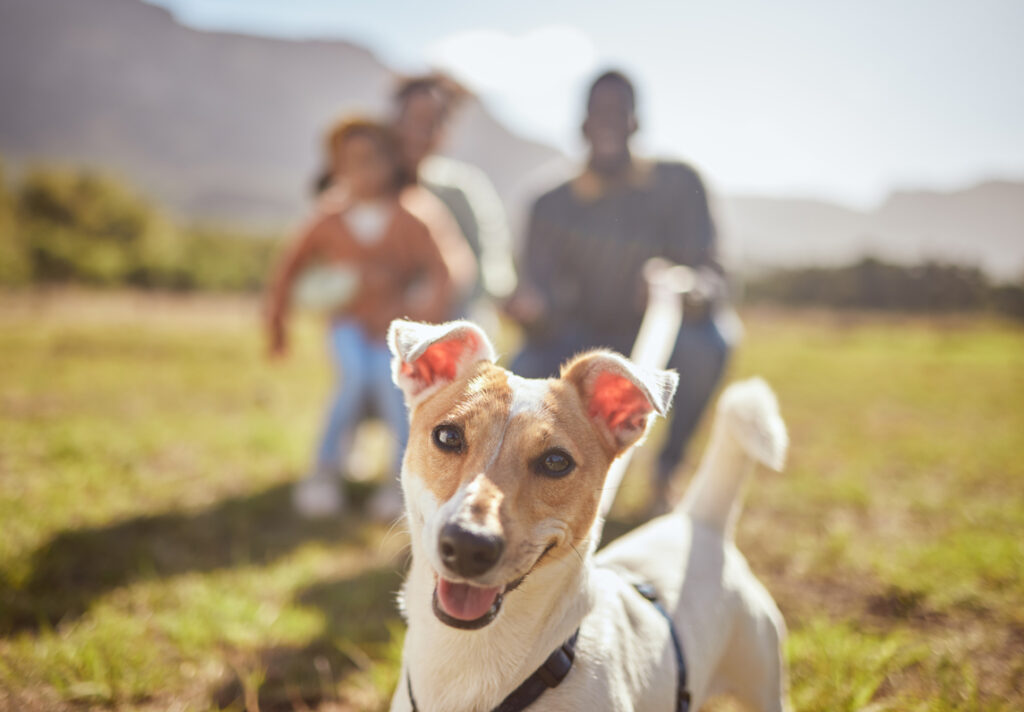
Social enrichment isn’t just good for dogs — it’s great for dog parents, too! In addition to the benefits listed above, social enrichment also makes dogs happy! Dogs that regularly engage with others are often more content and relaxed. Socializing also helps dogs learn how to communicate better with both other dogs and humans, leading to smoother interactions.
For people, socializing their dogs helps to:
Strengthen bonds: Engaging in social activities with your dog improves your relationship and promotes trust.
Provide opportunities for exercise and fresh air: Activities like trips to the park or obedience classes get both you and your dog moving and enjoying the outdoors.
Expand your social network: Connecting with other dog owners can lead to new friendships for both you and your dog.
Reduce stress: A well-socialized dog is more likely to be calm, well-mannered, and easier to manage in public or during travel.
Ideas for Social Enrichment
Ready to enrich your dog’s social life? Here are some simple, effective ways to help your dog interact with others and enjoy the benefits of social enrichment.
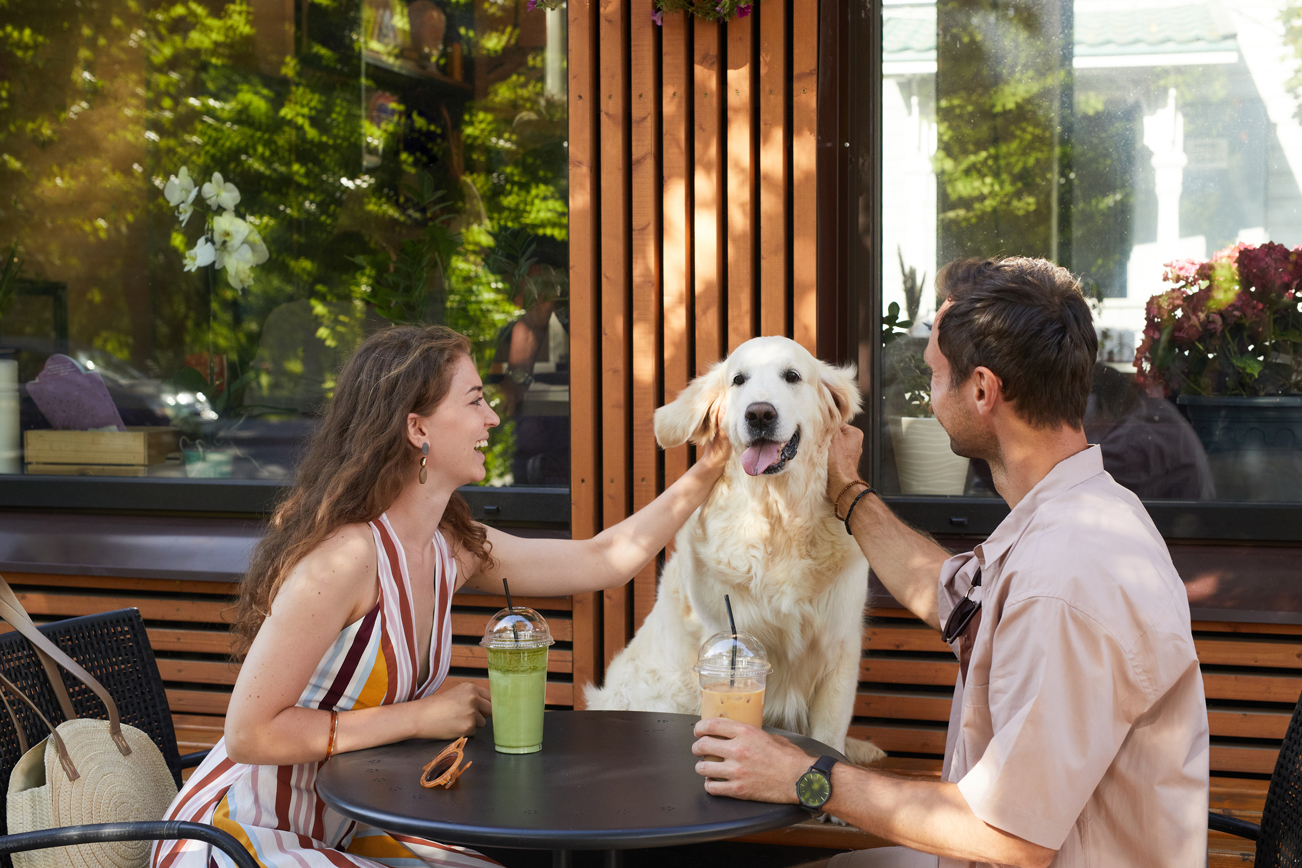
1. Arrange Playdates with Other Friendly Dogs
One of the best ways to offer social enrichment is by scheduling regular playdates with other well-behaved, friendly dogs. It’s an opportunity for your dog to learn important social cues while burning off energy through fun, physical activity.
2. Visit Dog-Friendly Places
Dog-friendly spaces provide a great environment for your dog to meet and interact with people and other dogs in a safe, controlled setting. Be sure to monitor your dog’s behavior, especially in the beginning, to ensure they’re comfortable and polite. If your dog doesn’t like interacting with other dogs, don’t worry. It’s not for every dog. Your dog can still benefit from the enrichment and enjoy the outing without physically being with other dogs.
3. Enroll in Obedience Classes or Group Training
Training classes are not just about learning commands—they’re also a great way for your dog to interact with other dogs and people in a structured environment. Obedience classes help build your dog’s confidence in new situations and strengthen their ability to concentrate around distractions. Don’t forget to bring the Pet Botanics Training Rewards! These small, low-calorie, irresistibly tasty treats are perfect for keeping dogs focused and motivated to learn.
4. Participate in Group Walks or Dog-Friendly Events
Community events such as group dog walks, farmers’ markets, or dog-friendly festivals are another excellent opportunity for social enrichment. These outings expose your dog to new environments, people, and dogs, helping them become more adaptable and well-adjusted.
5. Introduce New People and Environments
Socializing your dog with people beyond your immediate family is important. Invite friends over to your home, take your dog on errands to pet-friendly stores, or walk them around different parks. Keep Pet Botanics treats on hand to reduce anxiety and create positive associations with these new experiences. Give treats to the new person and have them reward your dog for a polite greeting.
Safety Measures for Social Enrichment Activities
While socializing your dog is very important, keep in mind that all dogs have social limits. Closely observe your dog during interactions with other dogs and people and watch for signs that they’re uncomfortable, like lowering their head, lip licking, yawning, stiffening their body, or showing teeth. If you notice signs, remove them from the situation promptly so that it remains a positive experience. Other essential safety measures for socializing your dog include:
- Leashes: Always keep your dog on a leash when introducing them to new people and teach them how to greet people nicely. When introducing them to new dogs, it’s often a better approach to let them meet in a controlled, contained setting off-leash, such as a puppy training class. If you do let them meet on-leash, keep the meeting very brief and reward with treats.
- Requesting (or Denying) Permission: Always ensure that all parties involved — you, your dog, the other person, their dog — are in agreement before approaching each other. If your dog is interested, ask, “Would it be ok if my dog greets you?” or “Can my dog meet your dog?” It’s also ok to politely decline if they request the interaction and your dog is unsure. “Sorry but my dog is a little nervous around new people/dogs.”
- Vaccinations: Early socialization is very important for a puppy’s development. However, unvaccinated puppies should only meet other dogs who are fully vaccinated and gentle with puppies. Avoid taking them to public places like dog parks, stores, and events until 1-2 weeks after their last round of vaccinations.
Social enrichment is essential for dogs to develop into confident, well-behaved companions. Remember, wherever you and your dog socialize, bring a pocketful of Pet Botanics. From playdates to the dog park, the right treats can make every interaction a rewarding experience.
